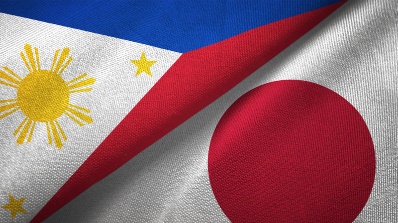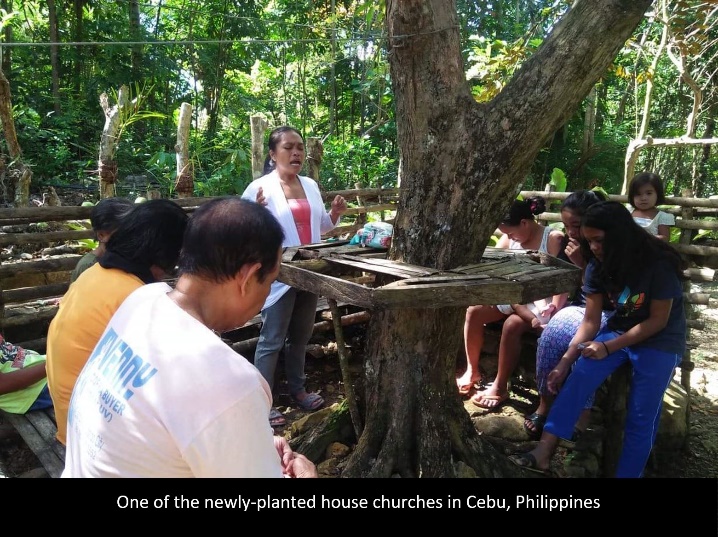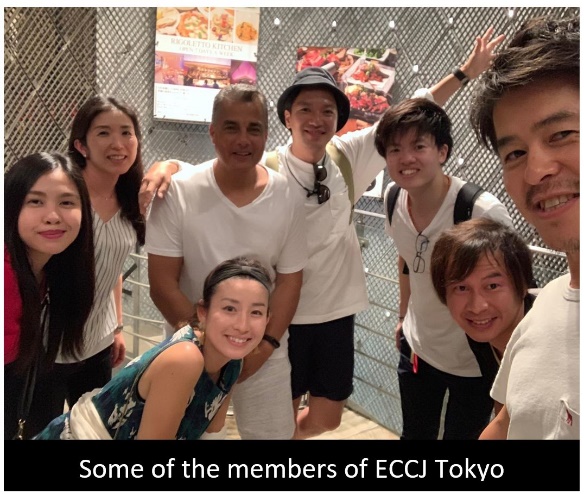Planting Gospel Communities in the Philippines and Japan
 After Mark and Cora King and their three children were sent to Philippines by Ealing Christian Centre (ECC) in September 2004, they planted the first of what would become seven churches on the islands of Cebu and Leyte – all planted in mountain and fishing villages.
After Mark and Cora King and their three children were sent to Philippines by Ealing Christian Centre (ECC) in September 2004, they planted the first of what would become seven churches on the islands of Cebu and Leyte – all planted in mountain and fishing villages.
Since the first church was planted in 2005 many disciples and leaders have been raised who have subsequently impacted and influenced many communities with the gospel of Jesus.
Before returning to ECC in 2012, Mark and Cora handed over leadership of the ministry (registered as G.E.M.I.I.), to Jen Peñas who is the Elim Global Leader of the Visayas region of the Philippines. (Mark is still a member of the G.E.M.I.I. leadership).
For the first 15 years of the G.E.M.I.I. ministry, the churches developed into the ‘additional model’ which the majority of Filipino churches traditionally follow. Although this model was proving effective in fulfilling the mission of G.E.M.I.I., the leaders desired to see more of a rapid growth in the planting of new churches in communities where there was no true Christian witness.
So, they started by studying why the gospel spread so rapidly after Jesus’ resurrection and, amongst other things, discovered that the one of the reasons for their success was that the early church leaders equipped ‘ordinary’ people to become disciple makers. Filled with the Holy Spirit, they became intensely zealous in sharing their faith within their own social networks in informal, and in family settings - moving in signs and wonders.
In G.E.M.I.I.’s case, the additional model, had caused high dependence on the leaders doing all of the ministry and Pareto’s rule of 20% of the people doing 80% of the work was very much a factor throughout the ministry.
To address this, there had to be a heart and mindset change – from the leadership down!
So, in the last 18 months, G.E.M.I.I. has been going through a transition period to move from an additional model to one of multiplying churches, training ‘ordinary’ people to become zealous disciple makers. The goal was to see the full transition completed by the end of 2020, setting an initial target of each existing church planting at least one house church during the same period. The vision is for G.E.M.I.I. to become a church planting movement.
To aid this process G.E.M.I.I. have created a missions training centre or ‘hub’, which aims to train and equip church planters, sending them to plant gospel communities and raise up disciple makers throughout the Philippines and surrounding nations. With the curriculum and trainers in place, a temporary building erected, and 30 church planting students eager to be equipped, Mark, Jen and Iain Hesketh worked towards officially opening the hub on the 15th June 2020. However, the COVID-19 pandemic disrupted, but at the same time, fast-forwarded these plans!
 Because of the quarantine restrictions and social-distancing laws, the churches could not meet in their buildings. Online services were not an option due to the fact that none of the people in the villages own a smartphone, let alone have access to the internet. So overnight, 37 house churches (or gospel communities as they call them) were planted. They found that people naturally gravitated to the house churches – people who had left church returned – many received Christ and a door of opportunity to share the gospel in the family-social networks had been opened.
Because of the quarantine restrictions and social-distancing laws, the churches could not meet in their buildings. Online services were not an option due to the fact that none of the people in the villages own a smartphone, let alone have access to the internet. So overnight, 37 house churches (or gospel communities as they call them) were planted. They found that people naturally gravitated to the house churches – people who had left church returned – many received Christ and a door of opportunity to share the gospel in the family-social networks had been opened.
Restrictions on international travel has meant that the plans to open the hub has been postponed, however via pre-recorded seminars, 19 of the 30 church planting students have been receiving training during the county’s lockdown.
Now, as the Philippines starts to lift the quarantine restrictions, the priority is to make sure that the gospel communities are focussed and understand the purpose of their existence which Jesus outlined in Matt. 28:18-20 and Mark 16:15-18.
Amongst other nations, the G.E.M.I.I. leaders feel that God is leading them to impact the nation of Japan, and it comes as no surprise the ECC has a direct link into this nation. In September 2008, Pastor Aogu Tatayama and his wife Chisato planted a Japanese church (called ECCJ), that meets at ECC. As well as planting churches within the UK and other European countries amongst Japanese communities, they also have a vision to plant in their home nation of Japan. This vision is being accomplished by equipping and sending ‘returnees’ from ECCJ back to their home towns and cities in Japan. Many of the Japanese people who attend ECCJ are working for Japanese companies and are therefore only in the UK for a limited period. ECCJ’s strategy is pretty simple but effective!
Basically, after contacts are established through their social networks, members of the Japanese community are invited to attend programs like Alpha. It is through these access points that they are introduced to the gospel and become Christians.
However, typically after 3-5 years, their company contract expires and they return to Japan – this is the opportunity! The ‘returnees’ now go back saved and changed. They go back equipped with the gospel and the ability to share amongst their social networks in Japan. As result, the first ECCJ house church was planted in Tokyo in June 2019 – God is amazing!
 At the last census taken in 2016, there were nearly 250,000 Filipino’s and over 80,000 Nepalese living in Japan– most are domestic’s and caregivers - some work in the hotel and tech industries. There are a growing number of Filipino women who are married to Japanese men, creating an entirely new sub-culture and community and a door of opportunity into the spreading of the gospel amongst the Japanese and Filipinos in Japan.
At the last census taken in 2016, there were nearly 250,000 Filipino’s and over 80,000 Nepalese living in Japan– most are domestic’s and caregivers - some work in the hotel and tech industries. There are a growing number of Filipino women who are married to Japanese men, creating an entirely new sub-culture and community and a door of opportunity into the spreading of the gospel amongst the Japanese and Filipinos in Japan.
At this time Aogu, Jen Peñas, Bhab Ghale (ECC’s missionary to Nepal), Mark King, Iain Hesketh are working on a strategic plan for how Elim can best impact the nation of Japan with the gospel – to both the indigenous and to the various existing subcultures and migrant communities.